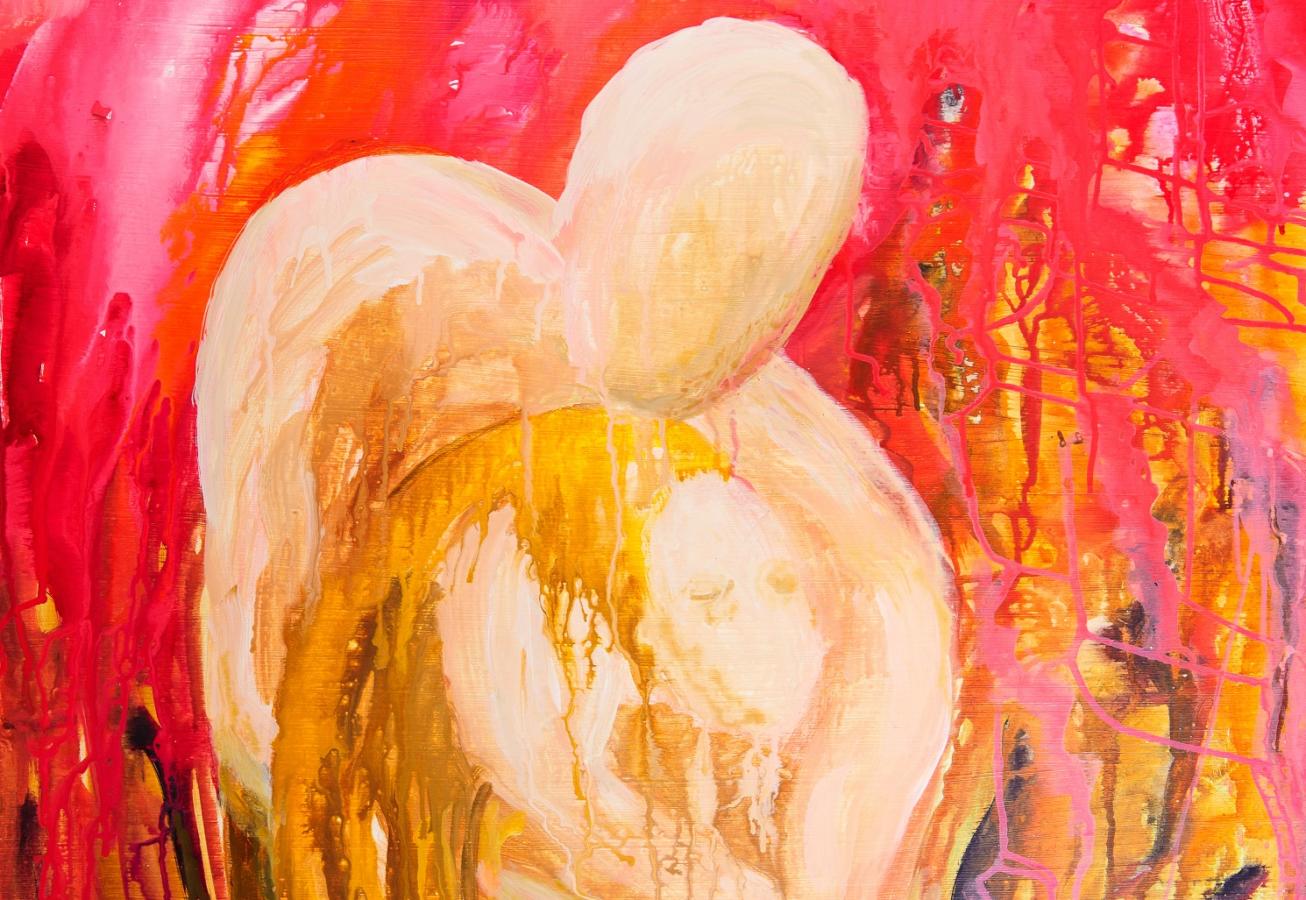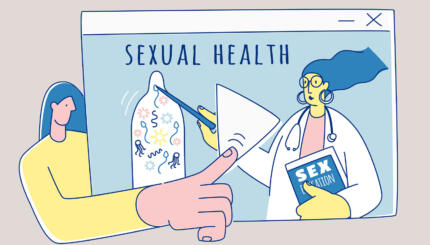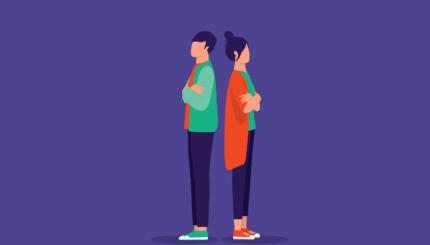It sounds kind of stiff and formal, but the words “safe and healthy relationship” are really important when it comes to dating and sex. That’s because all relationships need some sort of boundaries about what’s OK and what’s not, and understanding what these words means can help you figure out where those limits are. So what exactly does a healthy relationship look like?
“Relationships happen on a continuum,” says Jessica Gulmi, the clinic director at Crossroads: The Manhattan Young Adult Clinic, an organization that provides mental health support to young people in a safe, inclusive environment. “They can look and feel different at different points. There is definitely a healthy side, but some relationships can become unhealthy or even abusive. It’s important to know if a relationship is healthy or not, especially because things can change so quickly.”
How to Spot a Healthy Relationship
“The first thing that comes to mind always is how two individuals communicate,” says Tom Christensen, LMSW, a social worker at Crossroads. The hallmark of any healthy relationship is being able to express yourself openly and freely. You should be comfortable stating your needs.
On the flip side, good communication also means paying attention when the other person is sharing their feelings. “A healthy relationship has balance,” Christensen explains. “It isn’t a power struggle, and it doesn’t feel like one person is controlling the other.” In order for a relationship to be successful, both people need to feel comfortable talking about how they feel, and both people have to be able to compromise when things aren’t going perfectly.
Another sign of a healthy relationship: Even though you like to be with each other, you are not joined at the hip. Each of you is your own person; you are able to do things by yourself and don’t feel like you need permission from the other person (although it’s always nice to share your plans so your partner feels included!). People in healthy relationships are honest and trust each other.
When it comes to having sex, “the number one thing is consent,” Christensen says. “You should never feel pressured into doing something you are uncomfortable doing.” A really good sign of a safe and healthy relationship is if you say no to sex, or any intimate activity, and the other person acts like it’s no big deal. (OK, maybe they’re a little bummed, but they still want to be with you and vice-versa.) If you do consent to sex, know that partners in healthy relationships practice safe sex and use contraception every time.
What an Unhealthy Relationship Looks Like
There are many signs of unhealthy relationships, but a big one has to do with blame. In unhealthy relationships, when things hit a bump—like you forget a friend’s birthday or have a minor car accident—and one person blames the other rather than both people assuming responsibility. “Many arguments come from one person placing blame on the other,” says Christensen. “It sets you up for a power struggle by putting all responsibility on the other person and not paying attention to how those actions make them feel.”
Other signs of an unhealthy relationship include feeling manipulated by your partner, or feeling like the other person is trying to change who you are (controlling how you look, for instance, or trying to alter your schedule, your interests, or your friends). They might also try to control your use of Facebook or Instagram, or use it as a way to keep track of your every move. “Monitoring a partner on social media and always needing to know where that person is” is a red flag, says Gulmi.
How to Handle an Unhealthy Relationship
If you are concerned about your relationship, telling someone what’s going on is a good place to start. Who you turn to depends on your situation and support network: You might tell a friend, older sibling, teacher, parent, school counselor, religious leader, or therapist. The important part is choosing someone you trust.
You could also try one of these anonymous hotlines:
Day One: 1-866-223-1111
Rape, Abuse & Incest National Network (RAINN): 800-656-4673
Love Is Respect: 1-866-331-9474
Love Is Respect also has a text line: Text “loveis” (capitalization does not matter) to 22522. You will receive a response from a peer advocate prompting you to text your question, and they will talk with you about it via text. Or you can chat online with a trained RAINN staff member at online.rainn.org or rainn.org/es to chat in Spanish.
For more info, check out How to Leave an Uncomfortable Situation.
Reliable Resources on Safe Sex
If you have questions about contraception or what constitutes “safe sex,” these outreach organizations can help:
American Sexual Health Association
Where to Get Free Contraception
Planned Parenthood: Visit plannedparenthood.org to find a clinic near you.
Bedsider: Visit bedsider.org/free_birth_control to find a health center near you.
Condom Finder: Go to condomfinder.org/find.php to find where you can pick up free condoms.
Special thanks to our experts:
Tom Christensen, LMSW, social worker at Crossroads: The Manhattan Young Adult Clinic; Jessica Gulmi, clinic director at Crossroads: The Manhattan Young Adult Clinic.






